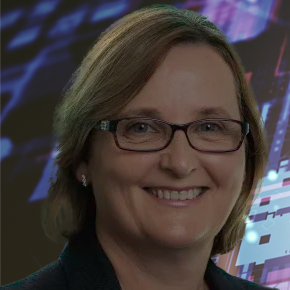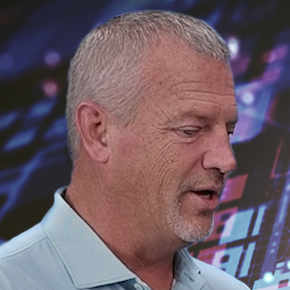
Transcript
Leah Archibald: Manufacturers today face several economic headwinds all at once. There is talk of a downturn economy. Some even use the taboo term “recession”. There is also supply chain risk driven by fluctuating materials costs and geopolitical instability. Amidst this crisis, manufacturers have to figure out how to maintain their most precious resource, cash.
Bernard Hensey has weathered many storms. He was the CEO of Boeing Shanghai, and VP for Commercial Business within Boeing Global Services. He’s not only an aviation expert he’s also an avid sailor, meaning he has multiple insights on how to navigate headwinds from both a business and a practical sense. Bernard Hensey, thank you for joining us today. Welcome to the podcast.
Bernard Hensey: Thanks, Leah. Great to talk to you again.
What Is Cash Burn?
Leah Archibald: Let’s start with a concept of cash burn. What is cash burn?
Bernard Hensey: Cash is obviously the lifeblood of every business. Let’s use the sailing metaphor, it’s the water over the rudder. If you can keep the cash flow in your business, it gives you the ability to make decisions. It gives the ability to navigate and go in the right direction.
Leah Archibald: And for those of us who are not sailors, what happens if there’s no water over the rudder?
[laughter]Bernard Hensey: The direction you take is really not in your control. You become sort of a victim of events rather than driving events. So, the critical thing here is that if you have water on the rudder and if you have cash flowing in your business, it gives you choices. And that’s what you really need in this type of environment.
Why Is Cash Important in a Recession?
Leah Archibald: So what happens to cash in an economic crisis? Why is it more important to manufacturers now than perhaps in other seasons?
Bernard Hensey: In an economic crisis you have the perfect storm where cash is harder to come by. On the financing side, it gets more expensive. We’ve seen interest rate rises. Even the access to funding arrangements may be restricted in this type of environment. Second is that inventories and your own ability to transform your working capital into cash becomes more difficult. It’s harder to plan future sales ahead of time and it’s harder to get your inventories right. You can end up with inventories in the wrong location or of the wrong product, and that creates a bigger issue. And then finally, in terms of accounts receivable, people pay slower because they have their own cash issues.
Leah Archibald: Now, some people have been afraid to use the term “recession”. Is that a term that scares you?
Bernard Hensey: I don’t think recession should scare you. I started in business in the late ’80s and ’90s. I was quite used to the recessionary environment that used to happen nearly every five to seven years. Now it’s been longer since the last recession, but you should not be afraid of recession. If you lean into it, if you view it as a natural business stage, then the term “never waste a good crisis” is a good one. A recession can give you the ability to clean house. It can give you the ability to reevaluate core strategies. It can give you the environment to evaluate your team. My call would be to lean into it and learn how to navigate in that type of environment.
How Can You Protect Cash Flow?
Leah Archibald: Where should a manufacturer lean in when they’re looking to make changes in a recessionary environment and they’re trying to protect their cash flow?
Bernard Hensey: The current environment is unique in the fact that the current recessionary environment has come on top of a period of supply chain instability. To answer your question, I think having the ability to reevaluate the integrated supply chain, including your own manufacturing, and to reevaluate your make versus buy decisions, I think that’s the area that I go at first.
Leah Archibald: What should manufacturers be thinking about in terms of assessing their resources?
Bernard Hensey: Coming out of the COVID crisis and the great resignation, many companies are facing constraints on engineering resources and constraints on manufacturing resources. Like most of the leaders I talk to now, they’re struggling to get staff, even though we’re in this crazy environment where we’re facing recessionary times.
The question is: Do you have the data? Do you have the understanding to know what type of resources you should have within engineering and manufacturing? Because if you are going to increase engineering in particular locations, it’s going to be expensive. It’s going to be time-consuming to get the people that are needed. So having the data to be able to make the right decisions quickly and effectively and actually turning those decisions into actions is part of a winning strategy.
Leah Archibald: Because if you don’t have the data, it’s kind of like sailing with no navigation equipment.
Bernard Hensey: Exactly.
Leah Archibald: You need to have that baseline data to know where you are.
Bernard Hensey: Look at the other key shift that’s happening: this big shift to Cloud infrastructure and Cloud solutions. What we see with those changes is the economics of IT investment fundamentally shifting, where it is becoming more viable to make bigger bets on IT transformation. So, the digitization of your supply chain – the ability to map out and understand how your business looks digitally – really plays to some of the strategies I talked about earlier. It gives you choices and options. It tells you where your cash is going. It tells you where cash generation activities may be.
Leah Archibald: You said before, “Never waste a good crisis”. Do you think manufacturers moving towards digital transformation would be a good use of this particular crisis?
Bernard Hensey: Digital transformation itself is not the end. It’s the data – it’s the information and the agility that gives your business what we’re looking for. So, as you look at your integrated supply chain and your own manufacturing operations, how can you model – how can you understand the choices that you can make in this environment? Can you switch particular product lines from in-sourced to out-sourced? Can you look at reevaluating vendors within the supply chain? Can you look at your own engineering resource? All those decisions need data, and they need an ability to model and understand your supply chain. And that’s where I think companies like aPriori come in, because if you have a digital thread, a digital view of your overall integrated supply chain, that’s where the basis of these decisions can come from.
Keep Cash Available to Invest in New Products and Infrastructure
Leah Archibald: So, what I’m hearing is that companies that take good advantage of a crisis are the companies that innovate the fastest.
Bernard Hensey: Yes. The way you do that is by having the data and an integrated model of how and where the business should be going. Then you need to keep cash available for investment in new products and new infrastructure.
Leah Archibald: And what percentage of manufacturing companies are doing this? Can you make a prediction about who’s going to stay afloat after this crisis?
Bernard Hensey: I’m not going to give a figure of that sort.
Leah Archibald: I can’t pin you down on that. [laughter]
Bernard Hensey: No, but one thing I’ll tell you is that in manufacturing if you’re not up to your game, you’re not going to be there. Because unlike other businesses – service-type businesses – manufacturing faces the full brunt of the wind all the time. And if you’re not on your game, you’re not going to be around. So, putting in the right infrastructure and technology to give you the right way forward is a pressing opportunity.
Leah Archibald: So tackle a crisis, but not in a crisis mindset.
Bernard Hensey: Exactly. And if you’re addressing competition in a winning way, that becomes fun. People want to win and they can if they have the right tools, the right data set, and a great approach for the future.
Leah Archibald: Said like a man who knows where he’s going, but who also likes to ride the wave.
[laughter]Bernard Hensey: Yes. Super.
Leah Archibald: Bernard Hensey, thank you so much for sharing your wisdom on the podcast today.
Bernard Hensey: Thanks, Leah. Great to talk to you.




